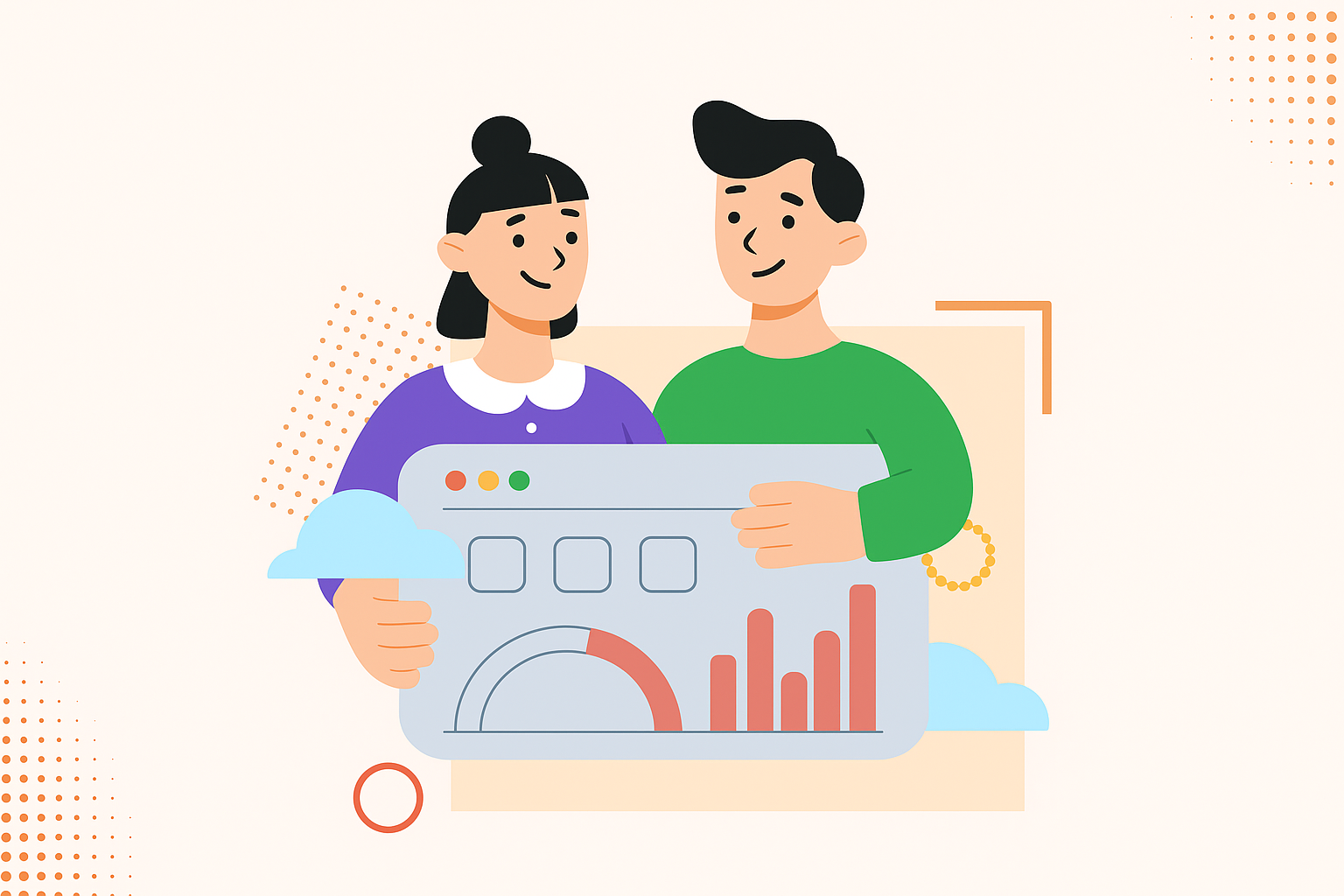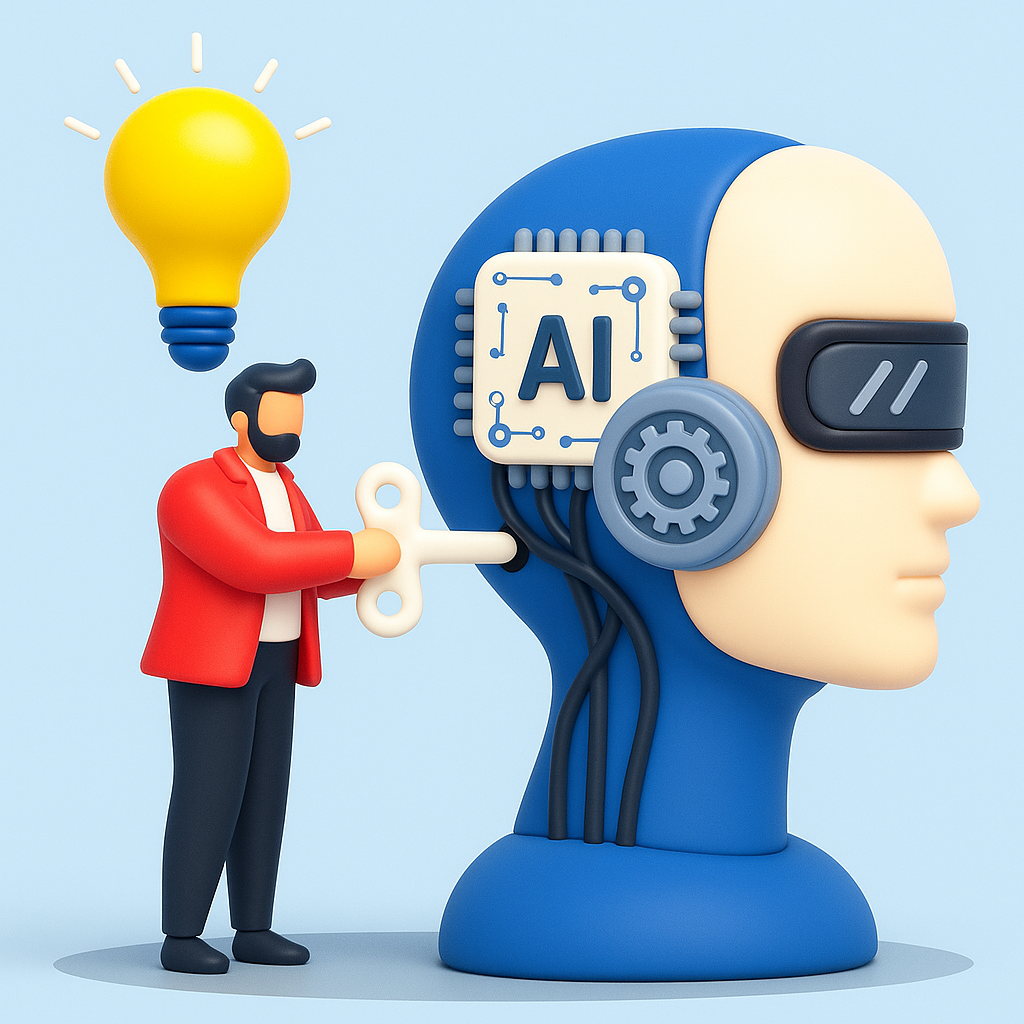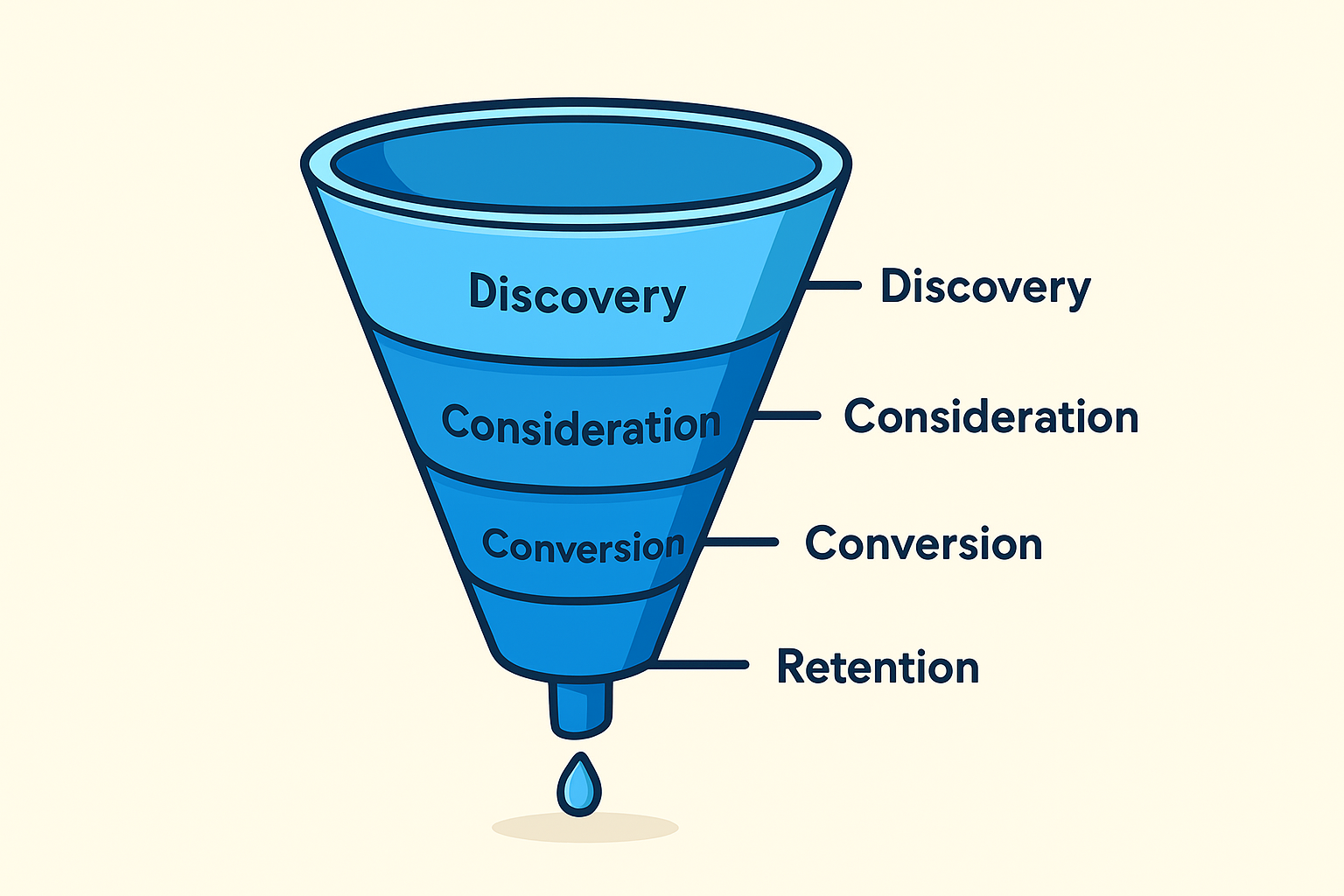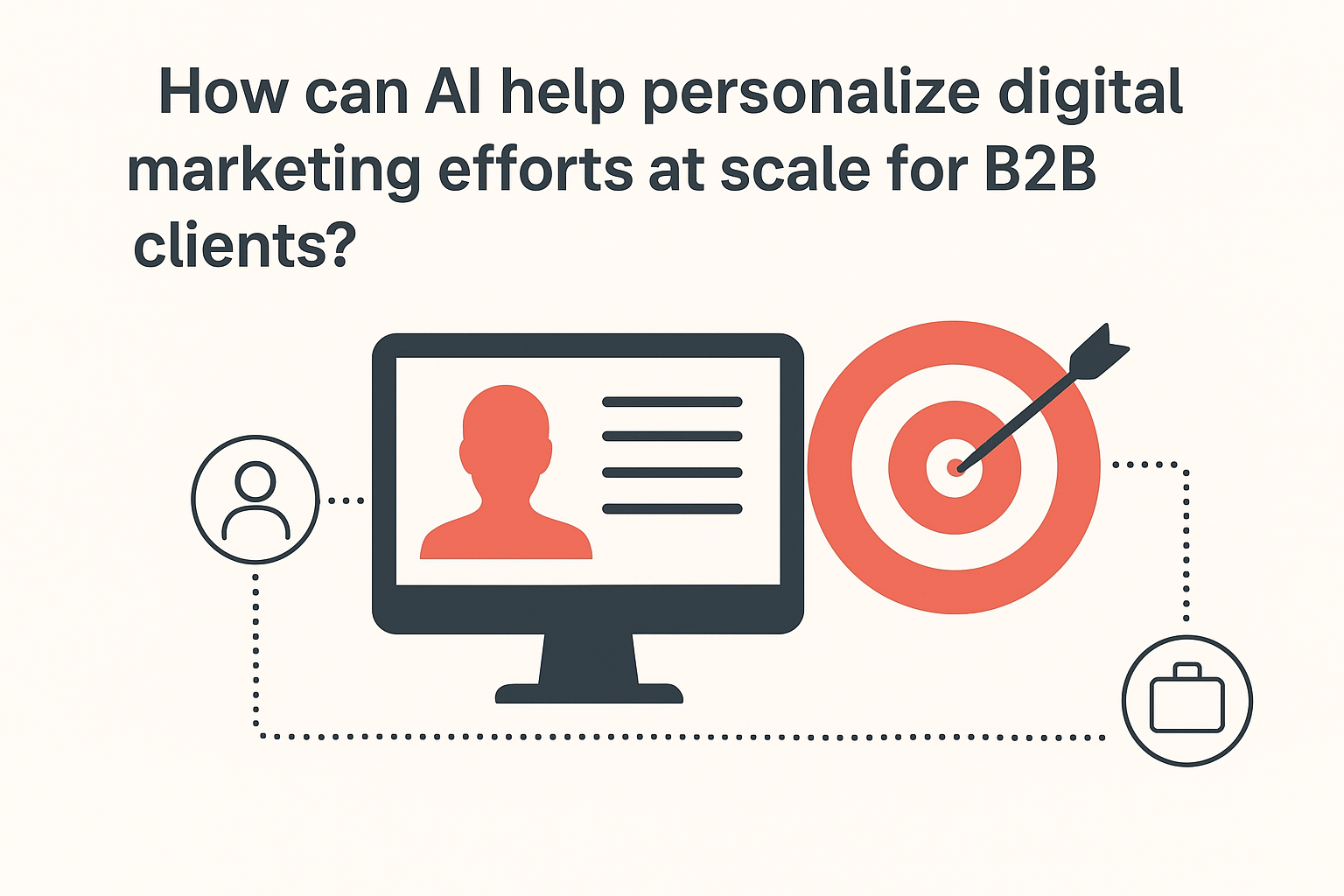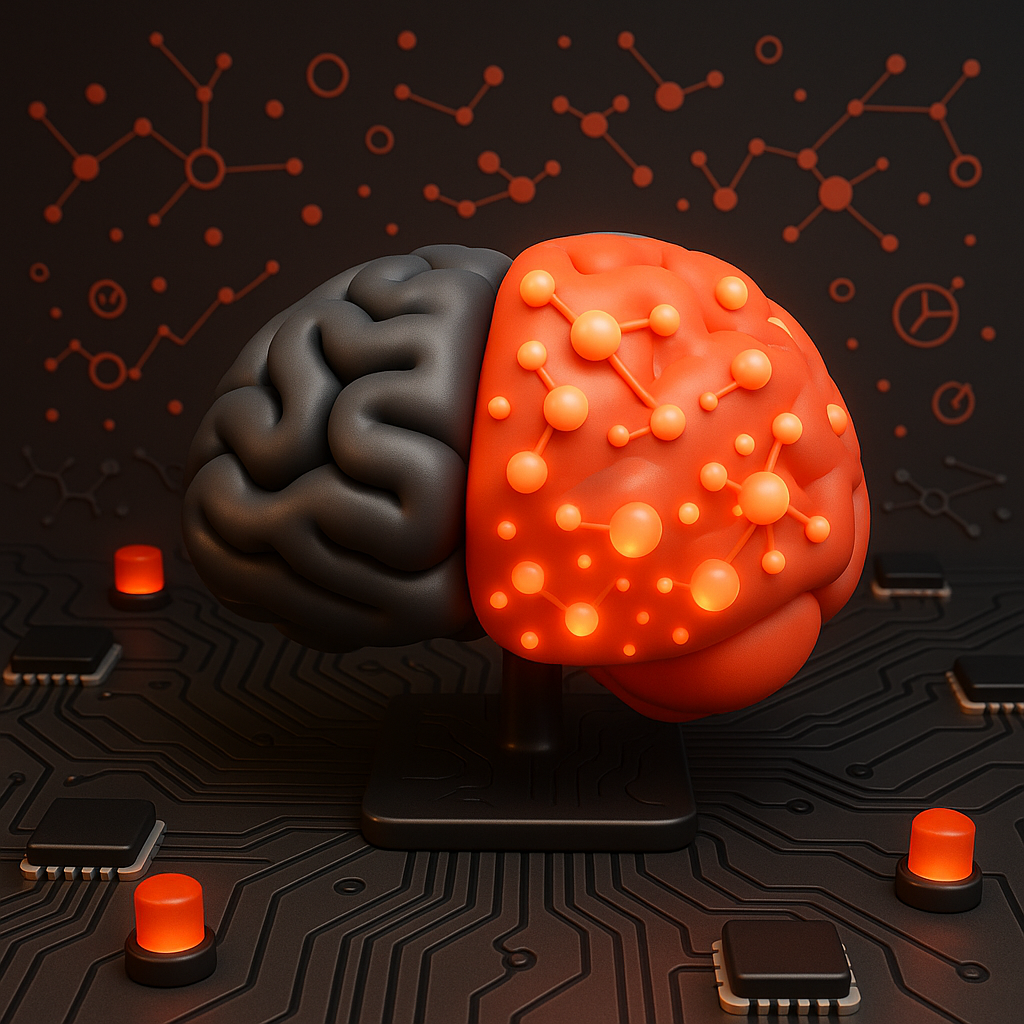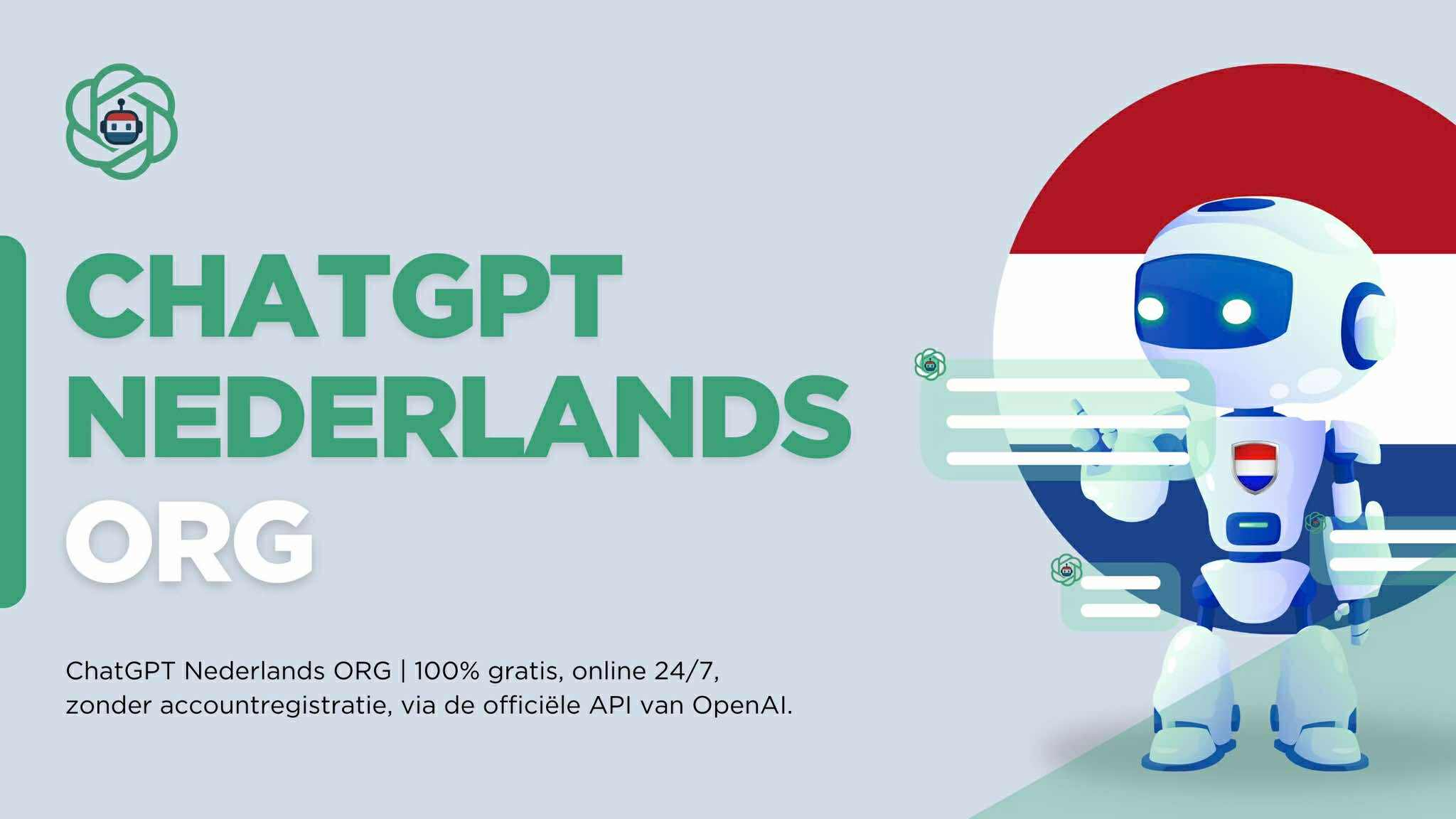Unlocking B2B Growth: Effective Hyper-Personalization Strategies for Success
Hyper-personalization has become one of the most powerful growth drivers in modern B2B marketing. As buyers grow more selective and expect tailored experiences, businesses that personalize every touchpoint gain a clear competitive edge. This blog breaks down how hyper-personalization accelerates B2B growth, along with practical strategies you can implement immediately.
Why Hyper-Personalization Matters in B2B
B2B buyers engage with multiple channels, compare options carefully, and expect brands to understand their needs. Hyper-personalization uses real-time data, behavioral insights, and AI to deliver highly relevant messages, offers, and experiences.
This not only increases engagement but also drives conversions, customer loyalty, and long-term growth.
1. Leverage First-Party Data for Precision Targeting
First-party data is the foundation of effective hyper-personalization. It includes website interactions, email engagement, product usage, and CRM information.
Pointers:
Collect insights from website visits, demo requests, and content downloads
Track behavioral patterns to understand buyer intent
Integrate CRM, marketing automation, and analytics platforms
Use real-time data to trigger personalized campaigns
A strong first-party data strategy ensures you’re targeting prospects accurately and tailoring messages to their journey stage.
2. Develop Account-Based Marketing (ABM) Frameworks
ABM elevates hyper-personalization by focusing on high-value accounts with tailored campaigns.
Pointers:
Identify high-potential accounts based on revenue, scalability, or strategic alignment
Deliver personalized content for each decision-maker in the account
Customize landing pages, email sequences, and ads
Use intent data to time your outreach
ABM transforms generic marketing into high-touch, relevant communication that resonates with top-tier prospects.
3. Personalize Your Content Journey Across All Channels
To succeed in hyper-personalization, your content must speak directly to the buyer’s challenges.
Pointers:
Create role-specific and industry-specific content
Build personalized nurture tracks in email workflows
Use dynamic content blocks on websites and landing pages
Offer tailored lead magnets like ROI calculators or industry reports
By aligning content to buyer personas, you strengthen engagement and guide leads through the funnel more effectively.
4. Use AI and Automation to Deliver Real-Time Experiences
AI-driven personalization helps deliver timely, contextual, and hyper-relevant experiences.
Pointers:
Deploy AI chatbots to provide instant personalized support
Use predictive analytics to recommend products, services, or content
Automate email workflows based on behavioral triggers
Tailor website experiences for each returning visitor
AI enables businesses to scale personalization without overwhelming marketing teams.
5. Tailor Sales Outreach with Behavioral Insights
Sales teams benefit heavily from hyper-personalization when outreach is customized using real-time insights.
Pointers:
Use engagement history (email opens, page views, document downloads) to guide conversations
Personalize outreach based on buyer pain points and company updates
Send tailored proposals and micro-demos
Coordinate marketing and sales insights for seamless communication
Personalized sales efforts significantly increase meeting booking rates and deal closures.
know more.
Hashtags
#B2BGrowth #HyperPersonalization #ABM #MarketingStrategy #DigitalMarketing
Hyper-personalization has become one of the most powerful growth drivers in modern B2B marketing. As buyers grow more selective and expect tailored experiences, businesses that personalize every touchpoint gain a clear competitive edge. This blog breaks down how hyper-personalization accelerates B2B growth, along with practical strategies you can implement immediately.
Why Hyper-Personalization Matters in B2B
B2B buyers engage with multiple channels, compare options carefully, and expect brands to understand their needs. Hyper-personalization uses real-time data, behavioral insights, and AI to deliver highly relevant messages, offers, and experiences.
This not only increases engagement but also drives conversions, customer loyalty, and long-term growth.
1. Leverage First-Party Data for Precision Targeting
First-party data is the foundation of effective hyper-personalization. It includes website interactions, email engagement, product usage, and CRM information.
Pointers:
Collect insights from website visits, demo requests, and content downloads
Track behavioral patterns to understand buyer intent
Integrate CRM, marketing automation, and analytics platforms
Use real-time data to trigger personalized campaigns
A strong first-party data strategy ensures you’re targeting prospects accurately and tailoring messages to their journey stage.
2. Develop Account-Based Marketing (ABM) Frameworks
ABM elevates hyper-personalization by focusing on high-value accounts with tailored campaigns.
Pointers:
Identify high-potential accounts based on revenue, scalability, or strategic alignment
Deliver personalized content for each decision-maker in the account
Customize landing pages, email sequences, and ads
Use intent data to time your outreach
ABM transforms generic marketing into high-touch, relevant communication that resonates with top-tier prospects.
3. Personalize Your Content Journey Across All Channels
To succeed in hyper-personalization, your content must speak directly to the buyer’s challenges.
Pointers:
Create role-specific and industry-specific content
Build personalized nurture tracks in email workflows
Use dynamic content blocks on websites and landing pages
Offer tailored lead magnets like ROI calculators or industry reports
By aligning content to buyer personas, you strengthen engagement and guide leads through the funnel more effectively.
4. Use AI and Automation to Deliver Real-Time Experiences
AI-driven personalization helps deliver timely, contextual, and hyper-relevant experiences.
Pointers:
Deploy AI chatbots to provide instant personalized support
Use predictive analytics to recommend products, services, or content
Automate email workflows based on behavioral triggers
Tailor website experiences for each returning visitor
AI enables businesses to scale personalization without overwhelming marketing teams.
5. Tailor Sales Outreach with Behavioral Insights
Sales teams benefit heavily from hyper-personalization when outreach is customized using real-time insights.
Pointers:
Use engagement history (email opens, page views, document downloads) to guide conversations
Personalize outreach based on buyer pain points and company updates
Send tailored proposals and micro-demos
Coordinate marketing and sales insights for seamless communication
Personalized sales efforts significantly increase meeting booking rates and deal closures.
know more.
Hashtags
#B2BGrowth #HyperPersonalization #ABM #MarketingStrategy #DigitalMarketing
Unlocking B2B Growth: Effective Hyper-Personalization Strategies for Success
Hyper-personalization has become one of the most powerful growth drivers in modern B2B marketing. As buyers grow more selective and expect tailored experiences, businesses that personalize every touchpoint gain a clear competitive edge. This blog breaks down how hyper-personalization accelerates B2B growth, along with practical strategies you can implement immediately.
Why Hyper-Personalization Matters in B2B
B2B buyers engage with multiple channels, compare options carefully, and expect brands to understand their needs. Hyper-personalization uses real-time data, behavioral insights, and AI to deliver highly relevant messages, offers, and experiences.
This not only increases engagement but also drives conversions, customer loyalty, and long-term growth.
1. Leverage First-Party Data for Precision Targeting
First-party data is the foundation of effective hyper-personalization. It includes website interactions, email engagement, product usage, and CRM information.
Pointers:
Collect insights from website visits, demo requests, and content downloads
Track behavioral patterns to understand buyer intent
Integrate CRM, marketing automation, and analytics platforms
Use real-time data to trigger personalized campaigns
A strong first-party data strategy ensures you’re targeting prospects accurately and tailoring messages to their journey stage.
2. Develop Account-Based Marketing (ABM) Frameworks
ABM elevates hyper-personalization by focusing on high-value accounts with tailored campaigns.
Pointers:
Identify high-potential accounts based on revenue, scalability, or strategic alignment
Deliver personalized content for each decision-maker in the account
Customize landing pages, email sequences, and ads
Use intent data to time your outreach
ABM transforms generic marketing into high-touch, relevant communication that resonates with top-tier prospects.
3. Personalize Your Content Journey Across All Channels
To succeed in hyper-personalization, your content must speak directly to the buyer’s challenges.
Pointers:
Create role-specific and industry-specific content
Build personalized nurture tracks in email workflows
Use dynamic content blocks on websites and landing pages
Offer tailored lead magnets like ROI calculators or industry reports
By aligning content to buyer personas, you strengthen engagement and guide leads through the funnel more effectively.
4. Use AI and Automation to Deliver Real-Time Experiences
AI-driven personalization helps deliver timely, contextual, and hyper-relevant experiences.
Pointers:
Deploy AI chatbots to provide instant personalized support
Use predictive analytics to recommend products, services, or content
Automate email workflows based on behavioral triggers
Tailor website experiences for each returning visitor
AI enables businesses to scale personalization without overwhelming marketing teams.
5. Tailor Sales Outreach with Behavioral Insights
Sales teams benefit heavily from hyper-personalization when outreach is customized using real-time insights.
Pointers:
Use engagement history (email opens, page views, document downloads) to guide conversations
Personalize outreach based on buyer pain points and company updates
Send tailored proposals and micro-demos
Coordinate marketing and sales insights for seamless communication
Personalized sales efforts significantly increase meeting booking rates and deal closures.
know more.
Hashtags
#B2BGrowth #HyperPersonalization #ABM #MarketingStrategy #DigitalMarketing
0 Комментарии
0 Поделились

